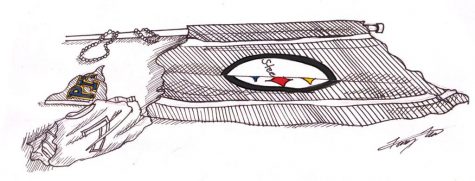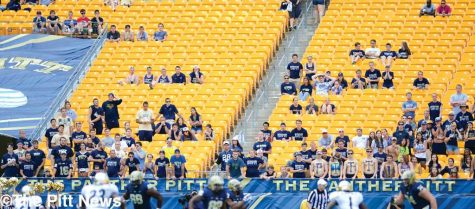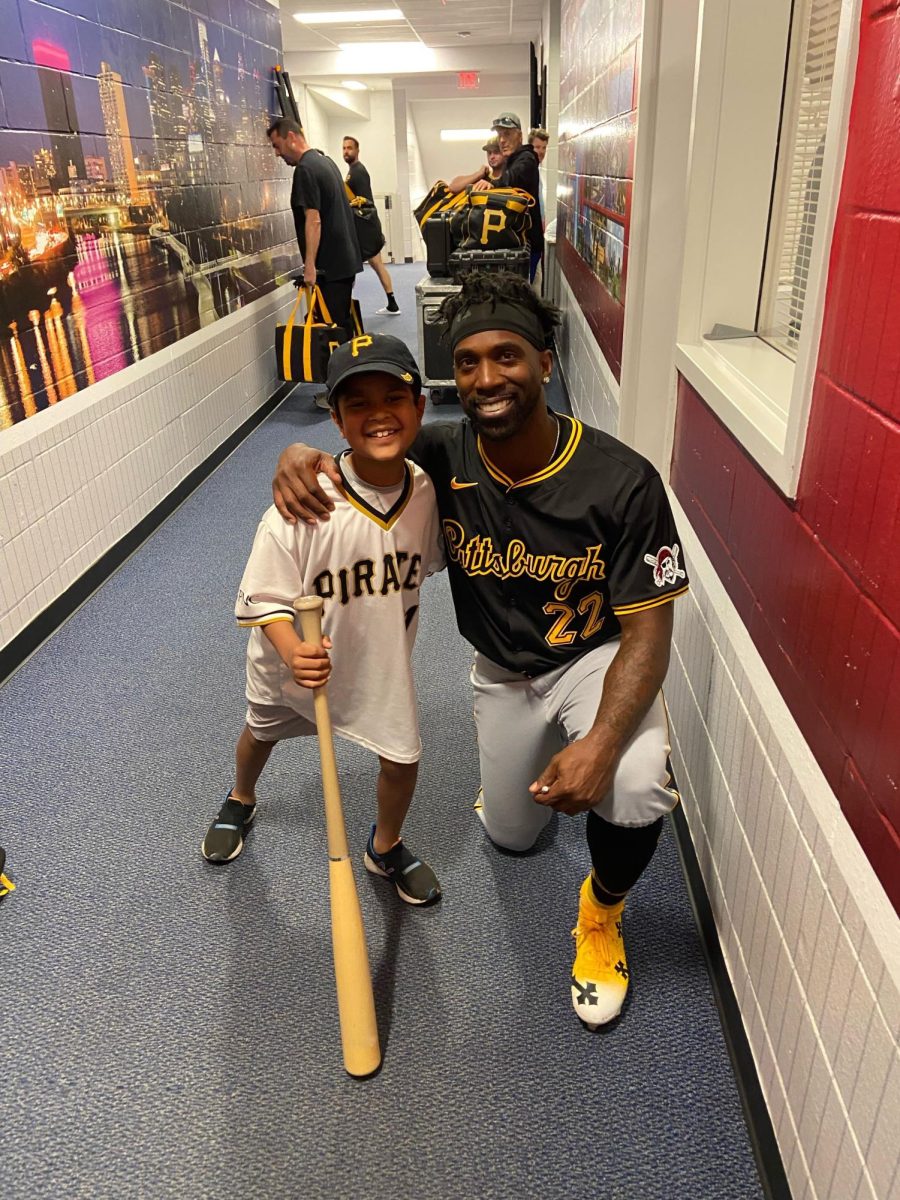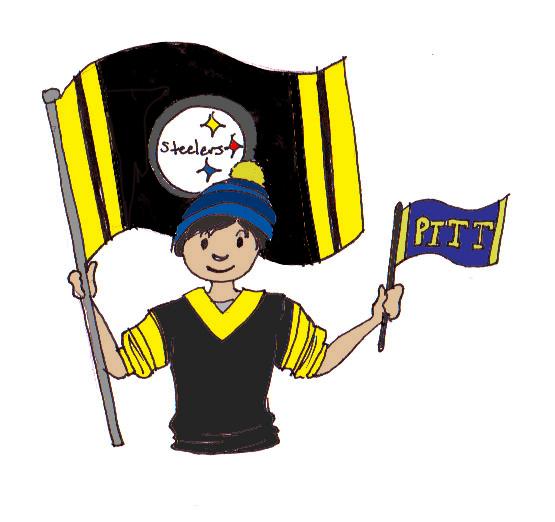As a Panthers football game begins, Pitt’s marching band ushers the team onto the field through a tunnel backdropped by a Pitt script banner.
Some of the players meet atop the Pitt logo at the 50-yard line, surrounded by waving Pitt banners inside and outside the stadium. Attendees pass through a front gate emblazoned with the Panther emblem to watch their team duke it out when the Steelers aren’t playing.
But some longtime fans still don’t think Heinz Field feels like home.
As Athletic Director Scott Barnes was rolling out the Department of Athletics’ strategic plan for the next year at a January Town Hall meeting, alumni stood up to complain about a lack of Pitt branding around the field, where Steelers’ black and yellow dominates the real estate.
Pitt is one of eight college teams that shares a stadium and branding opportunities with an NFL team. At a question and answer session after the Town Hall meeting, Barnes said despite certain NFL restrictions, there was “definitely room to grow” with on-field branding.
With the season looming closer, the Panther Fans Experience Committee — an organization that collects fan feedback on the athletic department — has begun converting complaints into game plans for fan engagement and Pitt branding.
Committee member Anson Whaley — who also serves as editor of Pitt sports blog Cardiac Hill — said branding has been a large focus of past meetings.
“That’s something we’ve talked quite a bit about in our meetings,” Whaley said. “I think it’s a big concern for Scott Barnes. It’s something he’s actively mentioned in our meetings.”
Andrew Goodrich, the assistant director of athletics for administration at the University of South Florida — an American Athletic Conference school that shares a stadium with the Tampa Bay Buccaneers — said he’s heard similar complaints at South Florida.
The stadium’s red Buccaneer-branded seats tend to clash with South Florida’s predominantly green uniforms.
To dress up the stadium on gamedays, South Florida drapes large football banners outside the stadium, green and gold banners in the 100-200 levels and a sign advertising the school’s student section, ‘The Herd.’
At Pitt, the Panther logo is emblazoned on each alternating row of seats, coupled with outside LED boards and a Pitt script backdrop in the tunnel for the team’s entrance.

Chris Bain, assistant athletic director for marketing at Pitt, cited sideline interviews with former players and honorary captains, interactive promotions and a social media feed on the videoboard as efforts to fill in where on-field branding leaves off.
But in the middle of it all, the most visible form of branding at any stadium is the on-field logo.
If South Florida plays the day before the Buccaneers at their shared Raymond James Stadium, the logo will be white instead of the traditional green logo.
Temple University, which shares Lincoln Financial Field with the Philadelphia Eagles, is not allowed to paint the field on days before Eagles home games, Scott Walcoff — the associate athletic director for marketing and promotions — said.
When that’s not the case, Temple paints the end zones and midfield with its name and logo.
Pitt changed its midfield logo this past season from a more generic, block Pitt logo, to a script Pitt logo with a blue outline.
According to Whaley, fan feedback influenced the change, which he said is proof that the Fans Experience Committee is incorporating input.
“One of things about the athletic department that I’ve gathered from these meetings is that it’s not just lip service for them, they’re actually listening to fans,” Whaley said.
Still, Whaley said more Pitt signs, as well as more Pitt apparel in the stadium’s stores — instead of a mix or Pitt and Steelers apparel — could amp up Pitt’s branding efforts on game day.
“The big problem is everything that they do is going to have to be things that can be changed in a short turnaround time,” Whaley said.
Teams that share stadiums face the challenge of filling inordinately large venues.
The newly-renovated Heinz Field has increased the amount of seating in Heinz to around 68,000, which Whaley said can make a Pitt audience look more sparse.
“A half-full stadium is never going to look like a college stadium,” Whaley said.
In an effort to get students to stay longer at games, South Florida upgraded its student shuttles to buses with Wi-Fi and charging stations. Meanwhile, this semester Pitt started placing chips and soda on buses for students who stayed until the game’s end.
Goodrich said the program has also focused on posting creative content, such as tweets that encourage season ticket renewals on social media to generate fan interest.
“We find a great return on investment,” Goodrich said. “When we create things that we put on social [media] that fans really appreciate, they share it with their other friends, it gets them talking about our event.”

Sun Life Stadium is in the process of a renovation which will reduce seating capacity from roughly 74,000 to just under 65,000, which will help address the issue for the University of Miami, Tom Symonds, the assistant athletic director for communications at Miami, said.
For South Florida, Goodrich said playing at an NFL stadium makes it difficult to sell out games. Easiest cure? On field success.
“It is too spacious when we’re not winning,” Goodrich said.
At Temple, such concerns could soon be moot, as it is in the process of agreeing and working through the logistics of an on-campus stadium. Mostly recently, Temple’s Board of Trustees approved funding for initial stadium designs.
“Having an on campus stadium is a game changer,” Walcoff said.
For fans hoping that Pitt follows suit, Walcoff stressed the difficulty and complexity of agreeing to and eventually building a stadium.
“Certainly there’s a lot that goes into it, from funding to location to the community. There’s many, many different factors,” Walcoff said. “It’s not as simple as snapping your fingers and saying, ‘Let’s put a stadium here and let’s build it.’”



